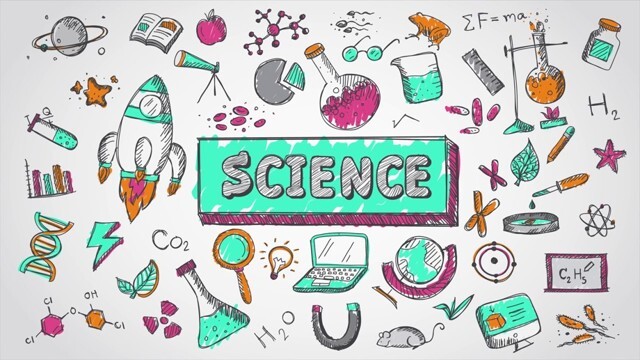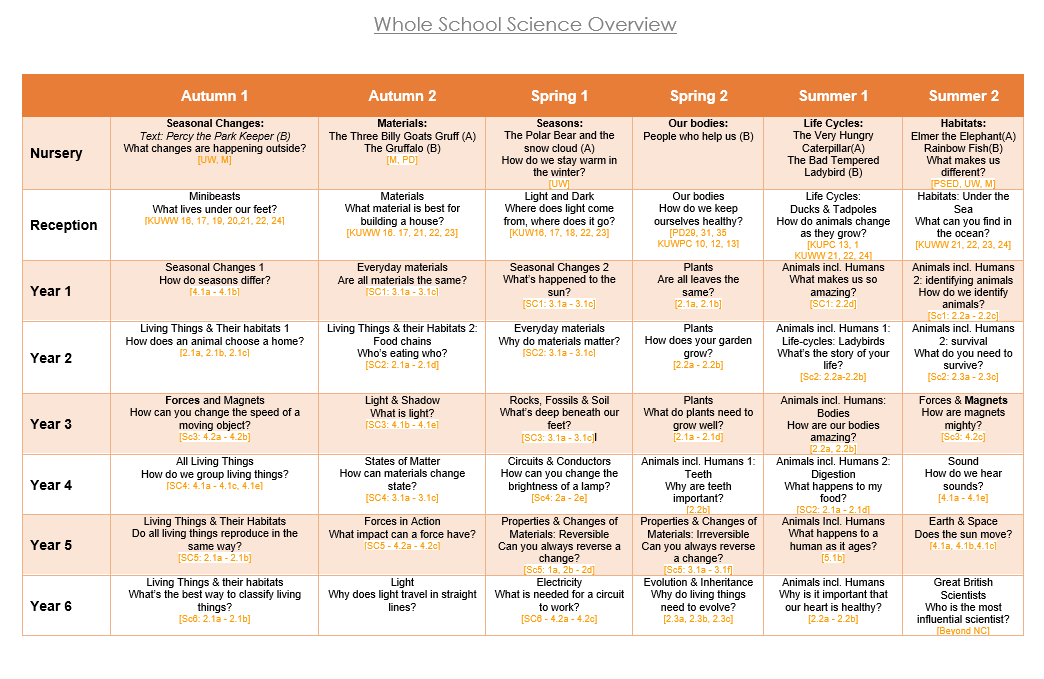Science

"A high-quality science education provides the foundations for understanding the world through the specific disciplines of biology, chemistry and physics. Science has changed our lives and is vital to the world’s future prosperity, and all pupils should be taught essential aspects of the knowledge, methods, processes and uses of science. Through building up a body of key foundational knowledge and concepts, pupils should be encouraged to recognise the power of rational explanation and develop a sense of excitement and curiosity about natural phenomena."
(National Curriculum 2014)
Our aims in teaching Science include:
- children develop a secure knowledge and understanding all areas of science
- children develop an understanding of how to work scientifically through practical work
- Children develop the ability to create their own scientific enquiries
- children understand how scientific knowledge and understanding has changed the world we live in and develop an understanding of the uses of science, today and in the future
- children maintain an enthusiasm and curiosity in science through practical, hands-on, fun lessons
Early Years Foundation Stage (EYFS)
In the EYFS, science is included within the Understanding the World area of learning. As with other learning in Reception, your child will mainly learn about science through games and play – which objects float and sink during water play, for example. Activities such as these will help your child to develop important skills such as observation, prediction and critical thinking.
Key Stage 1 and 2
Our science curriculum is designed to allow children to revisit topics in each year of primary school to embed prior learning and deepen understanding.
For example, the area of animals, including humans is examined in every single year group, with a very clear progression of knowledge and understanding over the six years:
In Year 1 this involves: looking at the human body, recognising animal groups and sorting these animals.
By Year 6, this will have developed into knowing the internal structure of the human body in relation to circulation, classifying living things based on more complex characteristics and exploring scientific research into this classification.
An overview detailing our history coverage for each year group from Nursery to Year 6 can be found here:

In addition to weekly lessons, children are engaged and excited about science through special events and activities. We hold an annual Science Day, incorporating fun and unusual experiments.
Each topic has a key question that the children will attempt to answer throughout the term using a range of historical sources. Low-stake quizzes are completed by all children at the beginning and end of a topic to monitor progress, along with a rigorous monitoring cycle involving pupil voice, work scrutinies and monitoring of the learning environment across all year groups to inform future planning.
For each year group, we have created a Child Friendly Subject Knowledge Organiser to help you support your child at home. These subject knowledge organisers detail:
- The question that your child is exploring and attempting to answer;
- Some background information and key facts linked to their topic;
- Key vocabulary that they need to know to enhance their understanding within this unit.
We hope that you will find these useful in understanding what your child will be learning in Science this term and when supporting your child at home.
SEND - Ambition and Access in Science
|
Ambition – What are we aiming for children with SENs to achieve in this subject? |
Access – What amendments are made to the subject in order to help children with SENs to achieve? |
|
|